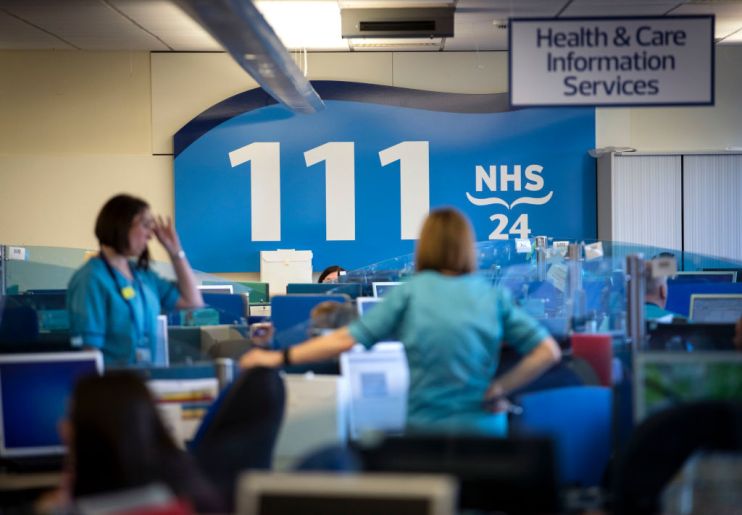Coronavirus: Healthtech needs a route to market

In just a few weeks the healthtech sector has made 10 years of progress, underlining why this week’s decision by the Chancellor to create a fund to support our innovative tech startups is necessary.
Most entrepreneurs position themselves as problem solvers but in healthtech we are seeing hundreds of tiny companies, often working with world-leading tech companies and institutions, to solve our society’s most intractable health problems.
AccuRx, already a trusted tool for UK GPs to send text messages to patients, built a video consultation product over a weekend after coronavirus cases started rising in the UK and is now providing 35,000 consultations a day through its deliberately ‘low-tech’ solution. They are now used by over 90% of GP practices and are rapidly scaling in hospitals.
Oxford Nanopore Technologies has provided its suite of sequencing products to countries worldwide, to help with the research and genetic epidemiology of the SARS-CoV-2 virus.
Benevolent AI has turned its AI drug discovery and development platform towards understanding the body’s response to coronavirus and exploring existing medicines with the potential to address the life threatening complications of the disease. While Faculty who had already partnered with NHSX to build its new AI lab, is now supporting the development and execution of its data response strategy in the context of COVID-19, alongside support from big tech companies Palantir and Google.
Babylon, Push Doctor and Doctify are taking the pressure off GPs with symptom checkers and video consultations. And many other startups, including staffing platforms and mental health apps, are offering services for free.
The health emergency has forced companies in the sector to concentrate on expediting practical solutions and the rate at which tech has been adopted shows both how adaptable patients and doctors are, but also why so many aspects of the status quo need to change and digitise.
The UK is not yet considered a world leader in healthtech – it lags Boston, San Francisco and Israel – but the crisis will help it become so.
We have a rich ecosystem of companies here and healthtech is now the second biggest sub-set of the UK tech sector, after fintech. More than 100 of these growing businesses are valued between £200m and £800m, with the potential to become $1bn businesses.
We entered the crisis from a position of strength. UK healthtech companies have attracted £6.2bn from global venture capital investors over the last five years. In six of the last seven years, investment in UK healthtech has been the highest in Europe and the number of companies in the sector has increased by a quarter since 2015, according to Tech Nation’s Data Commons.
Our universities are developing research that is among the best in the world and by aligning our expertise in life science with our capability in deep tech and artificial intelligence we can profoundly alter the way we care for people and make significant advances in medicine.
We have some of the best minds in the world working on genomic medicine and when that is applied to our expertise in artificial intelligence and computational biology, we have the potential to produce truly innovative companies at the intersection of technology and life sciences.
However, route to market traction is key to success. The NHS is both a blessing and a curse in helping to encourage startups. While it is great to have a single payer system, the NHS is still slow, bureaucratic and sometimes impenetrable for start-ups and SMEs.
Coronavirus is forcing it to change rapidly, although the Government had already demonstrated a commitment to improving care through technology with last year’s launch of NHSX, its digital healthcare innovation unit.
At some point in the coming months we will be ready to learn lessons from the pandemic and our response to it. New technologies should not just be a digital copy of what we had before but will bring a genuine improvement in the way that we deliver care, leading to better health outcomes and improving lives across the generations.
These are services that are required globally and our healthtech companies have the potential to become world-leading providers.
But when things start to return to normal, the ecosystem and the Government will need to work doubly hard to fight what remains a major threat to our ecosystem. The UK is still losing talent in this area, mostly to the US. If healthtech companies do not have a route to market here, they increasingly chose to relocate across the Atlantic.
Some will think that startups in this sector will be in clover after the crisis. That is far from the truth and we will need to continue to nurture and encourage a sector that has the potential to produce global winners, or we risk seeing an exodus of the people who are capable of building the next generation of global healthtech businesses.